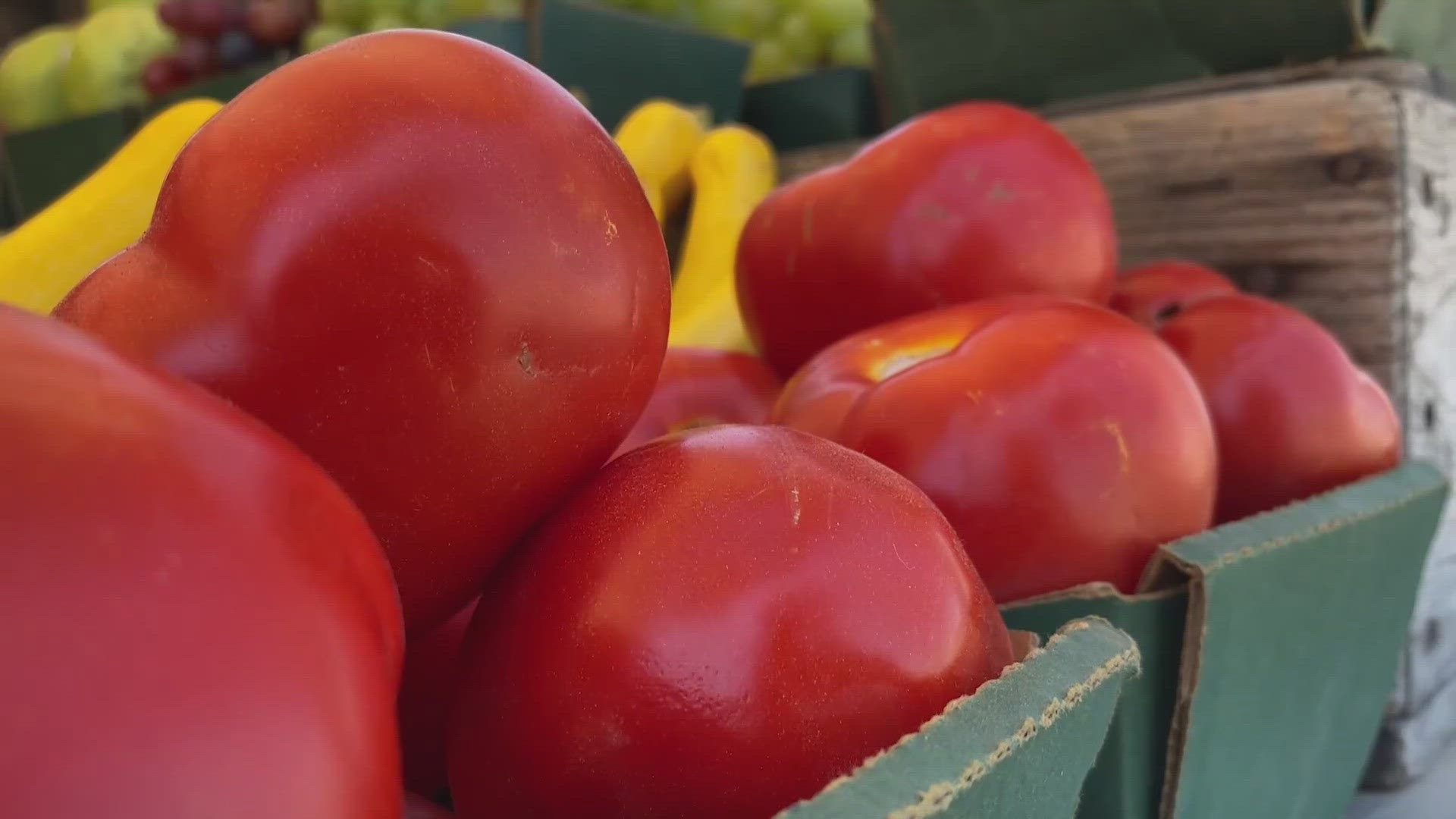MODESTO, Calif. — Tomatoes are one of Stanislaus County's top ten commodities, valued at over $53 million, and the effort to save that crop has put fields across the county under an emergency declaration.
With much of the county's nearly 10,000 acres of tomato fields in the pre-flowering stage, now is the season for beet leafhoppers, a pest that migrates each spring from the foothills to the valley.
"They're the only transmitter of beet curly top virus," said Stanislaus County Agriculture Commissioner Linda Pinfold. "When they feed, that's when they transmit beet curly top virus and that's what stunts, kills, turns them yellow."
It’s not a new problem — the pests and their crop-killing virus were first discovered in the state in the early 1900s, and there's already a pesticide designed to deter it. But in January came a new statewide regulation restricting the use of neonicotinoid pesticides.
"It was put in place to protect the honeybees," said Pinfold. "But in doing so, it was missed as to the impacts on the tomato industry."
In a statement, the California Department of Pesticide Regulation agreed the new regulation was meant to protect pollinators.
"Neonicotinoids can be toxic to bee colonies, especially over a long period of time. DPR adopted regulations to reduce risks to bees and other pollinators by limiting how and when neonics can be used. The regulation includes the potential for local exceptions to allow for limited use of otherwise restricted neonic applications to address new and invasive pests," the statement said.
According to Pinfold, the impact of the new regulation could be drastic if left unchallenged.
"It's important to our economy, but on top of that, it's important to people so they can be assured that they're going to be able to have a ready supply of tomatoes that they'll be able to purchase," said Pinfold. "If (farmers) don't have this tool, they could lose their crop very easily."
With the threat of a tomato harvest season lost to pests, Pinfold challenged the regulation, proposing an emergency declaration allowing tomato farmers to apply to use the pesticides.
The county's Board of Supervisors approved the 60-day declaration Tuesday. Pinfold said she doesn't expect to extend the emergency because the tomato plants should be less vulnerable to those pests in 60 days.
"They can't just apply and use the pesticide. They have to have a pest control advisor and write a pest control recommendation," said Pinfold. "It's a very important step and a process to help support our growers."
For more California coverage, stream ABC10+ on your TV for free:
► Roku - click here
► Amazon Fire - click here
► Apple TV - click here
Watch more from ABC10: Housing versus agriculture: California's growing battleground | ABC10 Originals



















